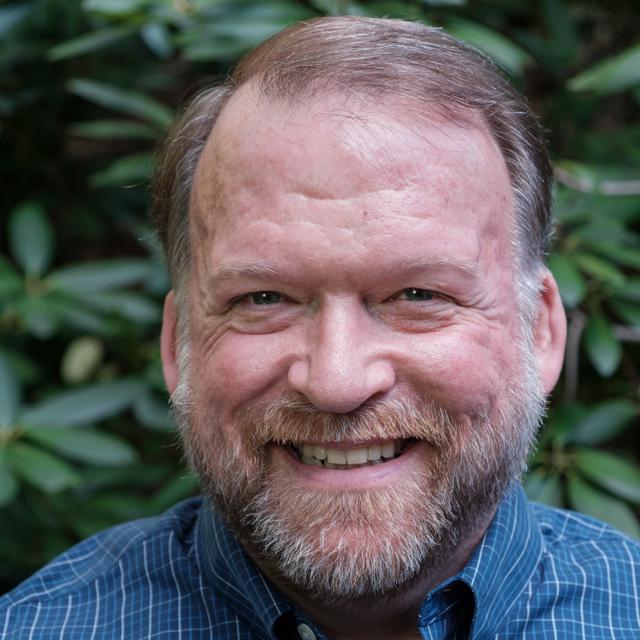Dan Keusal, M.S., LMFT
Jungian Psychotherapy for Individuals & Couples
"Find Your Purpose, Heal Your Pain, Live With Passion"
| Receive my email newsletter! |
Dan Keusal's e-newsletter
Spring 2016 edition: "Living Larger"
(Send me an email if you'd like me to email you the original email version of the newsletter.)
Greetings!
Starting with a scene from the movie "The Best Exotic Marigold Hotel," my essay in this newsletter looks at the idea of "living larger." It's an idea that has become distorted by our culture's inflated obsession with "more," but it's an idea which can, if we reclaim and transform it, lead us instead into a deep and meaningful way of moving through life. You'll also find here details about my next workshop, "Living Your Story," coming up on April 13th. And the "Resources" section in this edition includes a book by one of my favorite Jungian authors, James Hollis, who articulates a soulful approach to living that sets it apart from popular self-help/spirituality books. That section also includes a quote from Emily Dickinson, another of my photographs, a poem about midlife, and a moving performance by (and a thoughtful interview with) singer-songwriter Jonathan Edwards.
Know that I am here as a resource if you know someone who could use the support and guidance of a good therapist. I hope that you find in this newsletter something that puts a spring in your step...as you step into Spring
~Dan
* * * * *
Reflections: “Living Larger”
In a poignant scene from the movie "The Best Exotic Marigold Hotel," young Sonny Kapoor is trying to save the run-down hotel that he dreams will become a place of larger possibilities--for himself, and for others.
His widowed mother, who has buried her dreams (and her pain) beneath an adherence to tradition and pragmatism, arrives in town, declares Sonny's efforts a failure, and arranges to sell the hotel out from under him. She tells him "Just say goodbye to all this and come back to Delhi with me. Your life will be much easier."
“No,” Sonny replies, “not easier—smaller.”
This dialogue between Sonny and his mother is one I see going on every day inside the psyches of my clients. Because there is a part of each of us that has become worn down and frightened, made narrow, contracted, and small by the painful, wounding experiences that life has brought our way. This part of us longs for something “much easier,” and tries to get us to “come back to Delhi,” to seek some place, or person, or ideology that holds out the illusory promise of safety and security, of protection from further pain.
As long as this part of us prevails, as long as we remain scared and small, our pain tends to be replayed, repeated, replicated in the events of our outer lives. It also tends to be reflected back to us in the imagery of our inner life, including the dreams that visit us at night, dreams that often shed light on the particular ways we remain trapped.
But there is in each of us another part, a “Sonny” part, a part that knows that we are called to step through our fears into what Jungian analyst James Hollis calls a “larger life.”
The larger life that Hollis refers to, and that Sonny is striving for, is not about doing things on a grand scale, not about doing things that will make us rich and famous, not about doing things that are (necessarily) “best” or “exotic.” It is about tuning in to the reality that the psyche, the soul, is continually calling each of us to evolve, to mature, to (as Hollis puts it) “risk being who we really are.”
This is a never-ending process. It’s a process that is like that of trees, which continue to grow as long as they are alive, adding another ring with each cycle of growth.
Unlike trees, however, our growth is not simply “up” or “out.” It is also, even primarily, within.
When we take that journey within, when we take that risk to be who we really are, we discover challenges, and possibilities, that are uniquely are own, and once we step into both of those—they are inextricably intertwined—things change. Hollis puts this way: “When we spin out our journey from our own deepest places, we find a continuity of intention, a steady feeling of support that allows us to cross over the abyss of our existential angst. Then we discover that what we feared most was our own terrible and insistent freedom.”
Jungian psychotherapy is about learning to access that “steady feeling of support,” that sense that we are being led—not by something outside of us, but by something both inside of us and at the same time larger than us. The everyday struggles we face—relationship issues, stress, moods, anxiety, grief and loss, difficulties at work, or with family—these are not just problems to be solved, they are actually invitations to cross “the abyss of our existential angst.” They are invitations to employ our freedom and our capacity for consciousness to do more than just relieve symptoms, more than just “take the edge, off,” more than just get by. They are invitations to a larger, more authentic life, a life of depth and meaning.
And that life is not just about our individual journeys. It has the potential to help transform the wider world around us. It is here that the larger…opens out into the larger still. It is here that we see what Jung meant when he said that “when we heal the individual, we heal the collective.” Hollis writes “Every day that we can call out those demons of fear and reductionism and step into the larger journey intended by the soul, we actually serve the world better by bringing to it the unique gift that each of us represents.”
That’s what Sonny was doing. That’s what my clients are doing in each and every session that I’m privileged to share with them. Going within. Risking. Taking the next steps…toward living larger.
* * * * *
Resources For A Life Of Depth And Meaning:
(quote): "The sailor cannot see the north, but knows the needle can." (Emily Dickinson)
(poem): "Midlife" by Julie Cadwallader Staub. Regular readers of my newsletter will know that I'm interested not only in the "things" themselves, like this poem, but in the stories behind the things. A good example is what I learned about Julie Cadwallader Staub by reading the "About The Poet" page on her web site, and then imagining how her story may have played a part in the gentle wisdom that radiates out from "Mid-Life." (Another good example is the Jonathan Edwards story--see below).
(book): What Matters Most: Living A More Considered Life, by James Hollis. Many of you who read the essay in my last newsletter emailed to ask me about the book, the one that I found at the very end of my five-hour "browse-a-thon" at Powell's Books in Portland, the one I characterized as "both life-affirming, and life-changing," but whose title I did not disclose. This is that book, and a few of it's chapter titles do a fine job of evoking the mature wisdom that sets it apart from the popular 'self help' books that, like junk food, fill us up, but don't really nourish us. The chapter titles in Hollis's nourishing volume include: "That We Live Verbs Not Nouns," "That We Learn To Tolerate Ambiguity," "That We Find And Follow The Path Of Creativity And Delight In Foolish Passions," "That We Fight Fate, And Love It Also," and the one that I quote in my essay, "That We Step Into Largeness." Click on the title above, and use Amazon's "Look Inside" feature to read through the full table of contents, and then pay attention to see if you feel drawn to go further, and click on "Add to Cart." If you'd rather listen than read, try the MP3 of Hollis's lecture "The Personal Myth In Turbulent Times," available from the The Jung Center of Houston (click on the title)
(song/video): "Hard Times (Come Again No More)" by Tom Snow with Jonathan Edwards. For those of you old enough to remember this, Jonathan Edwards burst onto the scene back in 1971 with his hit song "Sunshine Go Away Today." He never reached that level of fame again, but it turns out that he has steadily persisted at writing and performing, and has lived a rich and thoughtful life ever since. Edwards re-appeared on my radar again when I heard him interviewed on NPR last fall (Here And Now, 9/3/15), and found myself intrigued and touched by his reflections, including the stories of how he was given up for adoption, gave up a child of his own for adoption, and then was reunited, at age 40, with his birth family. Edwards, who turns 60 this year, says during the interview "I think I'm listening far more accurately and deeply than I ever did before to what I'm doing." This song, "Hard Times," is an American classic, composed by Stephen Foster, and performed by Edwards as part of an ensemble led by pianist Tom Snow.
(image) "Stone Bridge, Whatcom Falls Park (Bellingham)." Another of my photos. Click on the thumbnail below to download a larger version of the photo, and to read the story behind it.
Dan Keusal, M.S., LMFT, Psychotherapist. (206) 523-1340. Email: dankeusal@dankeusal.com

